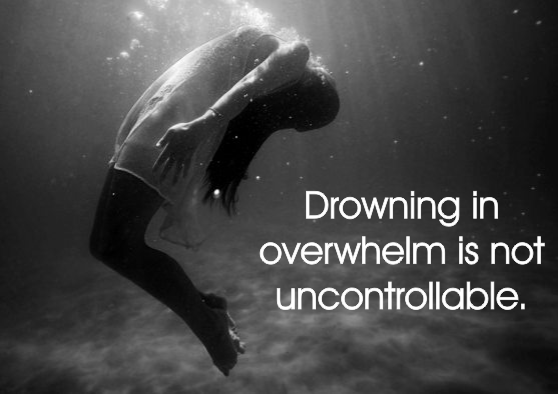ADSactly Psychology - Procrastination
Procrastination
You have probably heard this maxim a thousand times: procrastination is the thief of time; some people even started reciting it long before they knew the meaning of procrastination. There are lots of theories on why people procrastinate; this post will focus on “overwhelm” using a typical example.

If you procrastinate often, don’t worry, you are not alone. A lot of people procrastinate to some degree—a lot—just that some are chronic procrastinators, the ones who don’t get things done until the eleventh hour. Or, they find it hard to complete projects, especially projects with no deadlines. Thus, they forfeit rewards. They lose clients. Sometimes they feel like failures.
Andy, a web developer, has a four-week deadline to complete a web app project. It has to be built from scratch. It’s something Andy is capable of doing; in fact, he’s very skilled. He estimates it would take two weeks to complete the project.
On day two, in the morning, he sits in front of his computer to start. But at the same time he thinks of other things he wants to get done:
- write a post for his tech blog
- complete his personal web app project
- reply emails
- call a client to discuss about some updates he needs to make
- design a logo
And a ton of other things. Basically, he has an undoable to-do list. He also wants to win his ex-girlfriend back even though she already has a new boyfriend. He gets stressed, overwhelmed. Negative thoughts creep into his mind:
“Andy you don’t have enough time.” “Andy you don’t have the energy to do all these things.” “You can’t handle all these things.”
He feels “paralyzed.” There is anxiety and fear. He flees to totally avoid the negative effects of overwhelm by procrastinating, seeking an activiity that's more pleasurable like watching a video online. It's not just because of the overwhelming amount of things he wants to get done, but because of the brain's reflexive flight (or fight) response to negative experiences.
The cylce continues. He blinks and the first week is gone, then the second, and then the third. He has only completed about five percent of the project, and he can’t really figure out why. It kind of feels like twenty-four hours isn’t enough.
But he can’t afford to disappoint because there’s a lot to lose. His reputation is at stake. He spends the last seven days labouring day and night. It’s very stressful and could have been totally avoided.
Or Andy sits in front of the computer to start the project. Then he thinks of the amount of code he would have to write and the many things he would have to do before he completes the project. He gets overwhelmed without even starting. He decides to switch to a video sharing platform to watch a tutorial on how to build a mining rig, convincing himself that it’s also equally important since he’s learning, and possibly spends several hours watching different tutorials.
He only puts in more time into the project when panic mode is activated, when the deadline is close. He may even miss the deadline and disappoint the client.
Overwhelm is basically when there are great amounts of something that it becomes hard to deal with.

Source
He can overcome procrastination triggered by overwhelm by:
Prioritizing things he wants to do. It’s simple. He writes out all he wants to achieve for the day. Then he rearranges the list and places the important tasks above the less important once. After, he strikes out things he has no control over - like winning his girlfriend back: it would be on the list every day, and there is little he can do to make it happen. Even if it’s something he can achieve, there’s no use worrying or thinking about it while he has more important things to do.
Would something like, “Check photos on social media” be on the list? Not advisable. It could reduce his willingness to go back to the important tasks.
Building the web app may not necessarily be at the top of the list because there may be other things which are equally important—but more urgent. So, he gets those things done first.
Okay, Andy now has a list of the things he wants to get done, arranged according to how important and urgent they are. The next step is for Andy to decide how long he wants to spend on each task. More time may be allocated to writing posts for the blog than working on the web app for that day. The next day, he may spend more time working on the web app. And on another day it may be his personal web app project that he spends more time working on.
After checking a task off the list, it’s always a good idea to take short breaks before beginning another. He could take a short walk, meditate, or basically engage in activities that further his goals.
Splitting big tasks into smaller tasks. Andy has the list, and he knows how much time he wants to spend on each task. Let’s assume his plan for the first day working on the web app is to create its database, he could further breakdown creating the database into twelve small tasks.
We hardly get overwhelmed when we do things like update our status on social media, then switch to an instant messaging app to reply a friend’s text or view their status because these activities are easy. And we hardly leave them unfinished. Why would you type a status like “Just lost a tooth” and decide not to tap on the “Post” button because you’re tired or something. It takes less than thirty seconds to type and post.
When tasks are broken into little pieces, checking the first, second, third … little task off a list would feel as easy as updating your status. It’s not as exhausting as tackling the whole “big” to-do at once. Each time a piece of the main task is completed, there's satisfaction, it feels great, there's motivation to continue.

Source
Next time you get overwhelmed while working on something important, don’t let yourself slip into avoiding getting things done by procrastinating. Stop and ask yourself why you are getting overwhelmed. It may feel like your head wants to blow up, but it’s totally within your control to overcome.
Click on the coin to join our Discord Chat

Witness proposal is here: https://steemit.com/witness-category/@adsactly-witness/adsactly-steemit-witness-proposal
In the bottom of the page type: adsactly-witness and press vote.

Use small letters and no "@" sign. Or, click here to vote directly!
Thank you!
Well done
Procrastination is the result of laziness and it results in loss of concentration over time
Wonderful work .. Thank you for sharing.
I like this pic a lot. :D
Great article. I skimmed thorough, I will probably read it tomorrow.
I think I've spotted a fellow procrastinator ...
Haha
hhhh
This is gold!!
HAHA
nice article my steemit friend good job
Hahaha, this is so funny @golddeejay
Thanks for sharing @adsactly
Ballsy
hope u will by tomorrow. no stories
yea...I will tomorrow.
Thanks for the interesting post :)
I first came into the word "procrastination" when I was learning English in high-school, I remember checking it out in a dictionary and being fascinated by this word - it's like finding a definition, a short one, to a phenomenon you used to describe in a long sentence before.
Procrastination is a real problem - and it can have disastrous, and when things are so meaningful - the science usually steps in - in our case, scientists checked a method named "Internet-based cognitive-behavioral therapy" - it's an internet based help sessions methods with professionals that assist people needing it or without real persons involved, just a set of tools that assist in managing the situation of the needed person - in our context - it was found that using this method did help moderately in decreasing the procrastination rates among the participants - both with and without the guidance of a therapist.
Now - it might seem like an extreme measure, but if such tools do not require the procrastinator to speak with some other person - there is no shame involved and it might encourage people to actually use the help offered, and in severe cases - professional therapists might be needed.
There are some methods available in the internet that can be a nice addition to those offered in the post - google "2-Minute Rule" for example :)
Hello Kivsha. Thanks for sharing the info on Internet-based cognitive-behavioral therapy. And recommending the 2-Minute Rule, it's an effective strategy for overcoming procrastination.
yup, I am for sure more productive when I make a list than when I don't. When you make a list you are setting an intention. That alone makes it more likely to get done.
On the other hand, how many times has a "priority" project suddenly been cancelled or re-prioritized. Sometimes "strategic procrastination" can keep you from wasting your time.
oh yes, that's a good point too, sometimes I find things on old lists that I didn't do and that it turns out I didn't really have to do.
There are pitfalls, though ...
Sometimes I will find one of those old lists and then it is interesting to see what I have done or not. Sometimes I put things on that I know I will do, like take a shower. Then I have something to check off.
That's cheating!
Yeah, especially if it's in order of priority. I usually don't get all the way through the list, admittedly. I do usually make progress though.
Thanks for sharing your thoughts on this. Making a list definitely helps especially for those who easily get overwhelmed because of all they want to get done.
In Project Management you learn that you can break down even the largest project into a series of discrete steps.
following you now....:)
following you too, friend
https://steemit.com/cryptocurrency/@tanvirabedin/dogecoin pls follow and upvote me i also doing this.... pls
You're right, I'm always messy
fine imges
Great explanation..Procrastination is one of the 30 major causes of failure. This is what Napoleon Hill has said about it in his book
“Most of us go through life as failures, because we are waiting for the ‘time to be right’ to start doing something worthwhile.
Do not wait. The time will never be ‘just right’. Start where you stand, and work with whatever tools you may have at your command, and better tools will be found as you go along.”
—- Page 138, Think and Grow rich
Wise words. It's amazing once you think about what we are all capable of. Starting big projects is often the hardest part. People's ambitions often don't live up to what they're capable of.
Hello @Kouba01. Think and Grow Rich is one of my favorite books. Thanks for your contribution.
name of his book please....sounds like a winner....maybe it will help me stop procrastinating? hmm
Think and Grow Rich by Napoleon Hills
I have to finish reading that.. Then reread it again lol.
Postponement is usually the result of someone deceiving you, postponing your business will normally cause you to take more time than usual. Doing nothing or spending time doing unimportant work will cause your essential work to accumulate. If you are constantly repeating the delay, it will become a habit.
Having such considerations as determining goals that can not be accomplished, "I can not," "I will not succeed", "I can not finish my work easily" are causing delays. Being a fool depends both on what you do and on you. It is the attitudes and thoughts that make your job tedious, impossible to organize, disorganized, forced by work, exhausted and exhausted, difficulties in decision making, perfectionism, ambiguous goals, and delays in doing things at the same time and in a short time.
There are some things we can do to get rid of this situation.
The habit aspect is very key. Getting used to letting time slip or entertaining yourself as opposed to working is a really difficult habit to get away from.
@aquia10 Thanks for your contribution.
thanks
An excellent explanation of word “Procrastination”
I think this post should be used in Wikipedia!
I realy belive it.
“The cylce continues. He blinks and the first week is gone, then the second, and then the third. He has only completed about five percent of the project, and he can’t really figure out why.”
Not 💯 % of the time, but most of the time I belive I’m the opposite to “Procrastination”
I just can’t leave things for later. I would rather stay up until midnight too finish what I had planed to do. I guess it’s a good thing.
"sleeping" is also an important task.
OMG, it's already 01:30, and I planned to be in bed before 23:00 today, wtf happened? :p
Hello milano. Thanks for reading and sharing your thoughts.
I made an almost identical post about procrastination as my first ever blog. Didn't get nearly as much attention for it as you have. Money makes money I guess:)
Sad true 😢
following you now....:)
I could have upvoted you @Stockhausen if I was your follower then.
following you now.... :)
at your back immediately
Thanks for your post, I often ponder about procrastination and how to fight against it. I like the "do something" philosophy when dealing with procrastination. You don't need to plan to take on the full thing whatever it may be, but take one step doing something towards it. A lot of the time when people get active by even doing a small thing, they build momentum and end up doing more.
The biggest myth regarding action I have heard is that people need motivation before doing something. In my experience, motivation and inspiration take place after action, not before. Basically, getting up and do even a little something is better than waiting for that kickstart to complete it all.
For me it's sometimes so that the hardest thing is to get started with something. After I've started with the task, sometimes I discover it's much easier than expected.
I think it's important for people to remember that getting started on work is often harder than doing the work itself.
following you now....:)